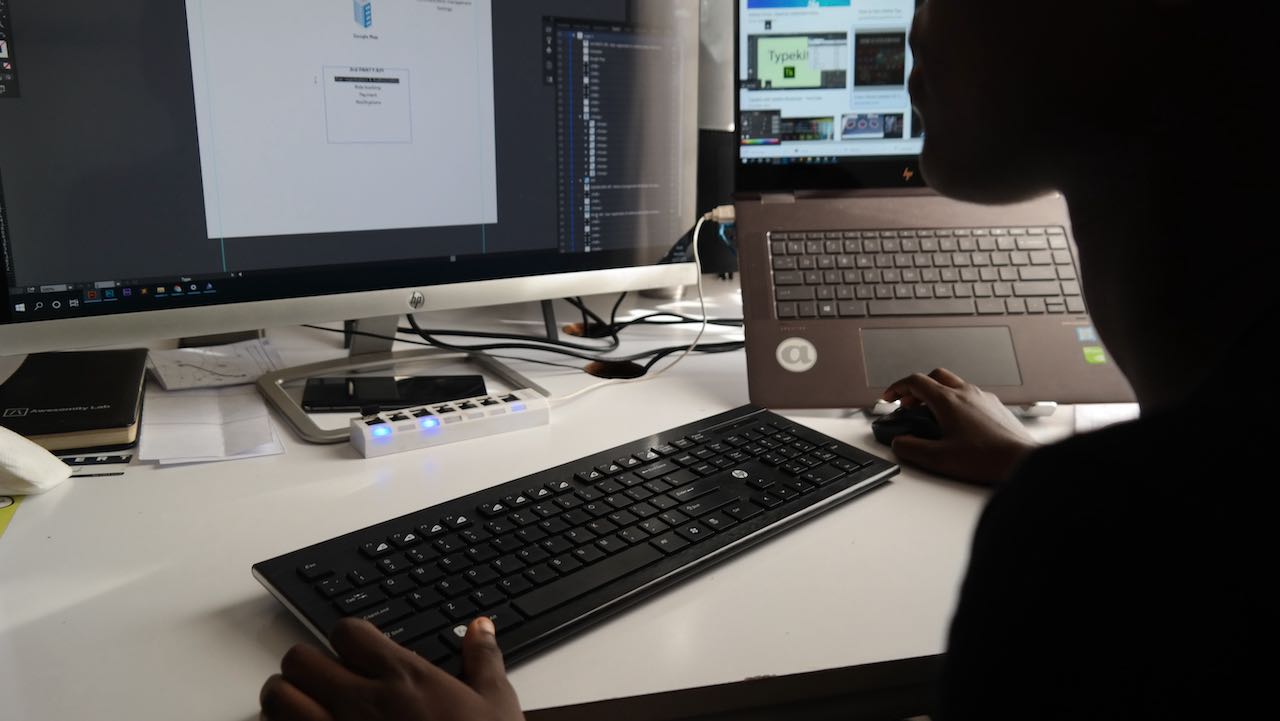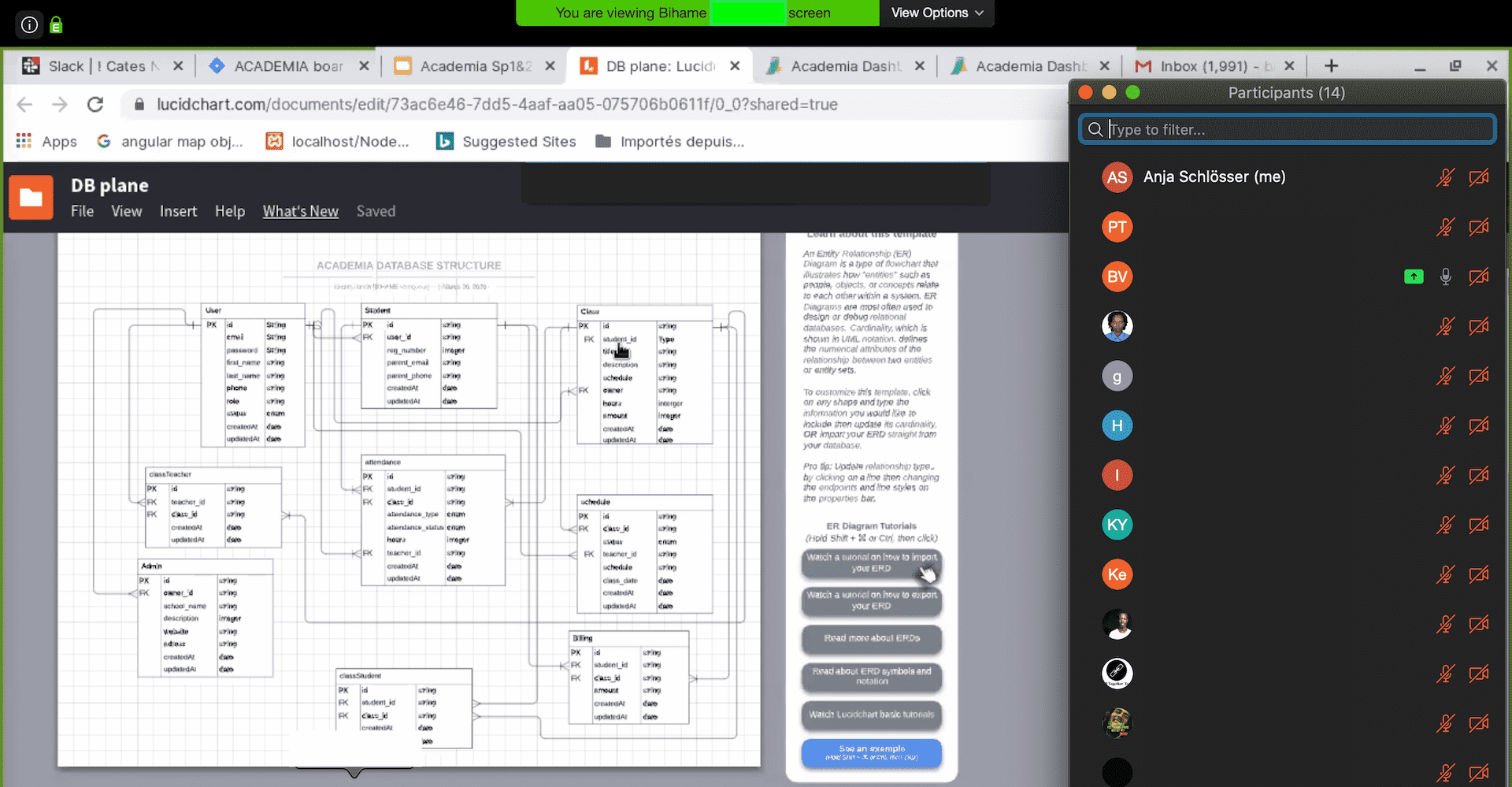How to become a remote software engineer.
“Remote jobs are quickly becoming more and more popular in practically every industry. ”
_11zon_20240612072642_0.jpg)
Are you trying to get into programming because you want to work remotely, like your fantasy of waking up in the morning, opening up your laptop, and getting to work? Another fantasy is that you like being a digital nomad and traveling the world while working.
These are awesome reasons to want to get into remote software development. But in this article Let’s look at the reality check about what it takes to become a remote worker. And this is from the perspective of Our developers who have been doing this for more than four years.
Whether you're currently employed in a development role and contemplating the shift to remote work or simply exploring the idea, it's crucial to understand the kind of reality of what you can expect versus your expectations associated with remote employment.

Reality Of Becoming a Remote Software Engineer
You can do this via your own business, as an employee, or as a freelance contractor. All of these work even if you currently have no previous experience whatsoever.
Anja our managing director and one of the CoA co-founders, she is currently living in France. For the last 2years, she has been living in Kigali managing a business based in Germany, and has an active team in Kigali ( Check out our home story). When talking to her about it she said “Travelling not just on vacation but living in different countries is one of the most transformative experiences you can give yourself.” But she even mentioned the reality of becoming a remote software engineer and that it is not easy. Here we suggest 4 steps, critical to making your remote working plan successful.
Step one: Laying your groundwork.
Before you even think of becoming a software developer, you need to understand one thing, “you shouldn’t become a software engineer just because you want to travel the world” Being a nomad engineer does not mean you’re on some sort of vacation. If coding makes you hate your life, cheap pad Thai will not save your day! Now with that out of the way, how do we get started?
The first step is to learn how to code, this step doesn’t change whether you want to be a normal software engineer or a remote software engineer. This might sound obvious, but we tend to get our heads in the cloud and take our minds off the work that matters! Thinking about remote opportunities before you even learn how to code is like when you’re trying to get fit, and instead of going to the gym to build muscles you just spend your time researching the best poses to show off your muscles before having muscles in the first place.
In terms of what to learn exactly, consider which languages are most in demand in the market, whether you want to focus on front-end or back-end development, and which stage you are at in your learning journey. If starting out, learn a more straightforward high-level language such as Python for back-end or Javascript with a framework such as React for front-end.
Step Two: Some experience.
Yes, I know you would want to find remote opportunities straight away, and while it is possible and we will tell you how in the next paragraph, the main recommendation is that if your first paid role, your foot in the door, you don’t worry too much about finding remote work yet and here is why.
Your first role in the industry is going to be much harder to convince Your employer to allow you to work entirely remotely, especially from a different country. “That’s because you haven’t built trust with them yet” In the beginning I would just say look for any opportunity that allows you to build your skills and experience, and then worry about transitioning into remote work later.
Step 3: Transition into remote.
Now if you did part two and you got your first job, the experience you gained should speak for itself and you can either transition into freelancing or you can talk to your manager at your current job and see if you can transition into remote. This is how most of the current remote senior software engineers started, talk to your project manager to let you work remotely and not come to the office every day. According to the experience you have at times he/she might be fine with it, maybe not completely remote yet but that’s a right step in the right direction. There you can prove yourself as a reliable employee by showing that you can do good work even from home.
Step 4: Consider your options
There are various approaches to establishing a remote career. Do you want to work for a company remotely or for a variety of clients as a freelancer? Do you want to open your own business? How you start your remote career will be primarily determined by your level of experience. One may leave their job to start working on their project as an independent software engineer not an employed one. And with freelancing as a backup option. and for those who might not want to leave their job, you can also do it remotely. However,
If you're new to the industry, start with a company where you can learn the ropes and find your footing before moving on to a freelancing job. However, if you've been in the business for a while, you may be ready to leave independently and establish yourself as a freelancer. It all depends on your personal career goals.
Step 5: Where to Look for Remote Software engineer Jobs?
If you're searching for a remote web developer position, it's wise to explore various avenues. Scan through both conventional job boards and those specifically tailored for remote opportunities. Additionally, consider targeting particular companies, as many prefer to advertise openings solely on their sites.
Moreover, if you come across a position that interests you but isn't labeled as remote, don't hesitate to apply. With the evolving work landscape, many employers are increasingly receptive to hiring remote staff, offering the potential for negotiation toward a more flexible working setup.
Here are some of the top sites to look for remote development jobs:
- Indeed
- Glassdoor
- Honeypot
- wearedevelopers
- Remote. co
- The muse
- Weworkremotely.com
- Remotive.io
Step 6: What are the requirements for becoming a remote software engineer?

Before you commit to a career as a remote developer, you should think about what it takes to succeed in this industry.
Not everyone is cut out for remote work, and if you're used to working in an office, you'll need to adjust some aspects of your workflow.
Aside from the necessary technical skills (which we discussed above), other qualities can help you have a successful career as a remote developer. This includes:
Discipline
In the absence of the office routine, the responsibility falls on you to establish your timetable and ensure tasks are completed. Remote work offers great flexibility, but it's important to avoid letting work and personal life merge too much. Maintaining discipline means organizing your day, sticking to consistent work hours, and not prioritizing personal tasks over professional ones.
Excellent communication
Communication is crucial for any job, and it becomes even more important when working remotely.
In the absence of face-to-face interactions, you’ll need to make sure that your employer, clients, or colleagues can easily get in touch with you by setting up clear channels for communication, such as Slack for quick messaging, email for formal communication, and video conferencing tools (Zoom in specific) for meetings. Clear communication channels facilitate quick exchange of information and reduce misunderstandings.
As a remote worker, you must demonstrate that you are as dependable as an in-house employee; you must be contactable, responsive, and communicative about the status of your job.
Time-management
One of the primary benefits of working remotely is the autonomy it provides—but with autonomy comes accountability.
You'll need to prioritize your tasks, set your own deadlines, and manage your time properly. If you're naturally organized, this won't be too different from your typical workflow—you just need to make sure you're assigning adequate concentrate time within your flexible schedule.
Self-motivation
Remote work can lead to feelings of isolation, as you may miss out on face-to-face interactions with colleagues, which can also take its toll on your motivation.
Even while working on collaborative projects, it's easy to feel isolated and disconnected from the larger aim, making it harder to get things done. You must approach it with high self-motivation to be an effective and happy remote worker.
You’ll find tips on how to stay motivated when working remotely in this guide.
Proper internet connection
Technical issues and connectivity problems are common challenges for remote developers. Dependence on technology means you may encounter disruptions that can impact productivity.
Remote employment requires effective communication and coordination. Fast and dependable high-speed internet is not a luxury but a need for uninterrupted video conferencing, crystal-clear audio calls, and instant messaging capabilities. It breaks down geographical borders, promoting effective teamwork.
In summary
The remote job market is growing it’s estimated that 73% of all teams will have remote workers. The web development job market is thriving the BLS estimates that employment of web developers will grow 25% from 2021-2031, and A successful remote career relies on certain qualities discipline, communication, self-motivation, and time management, to name just a few.
While remote software development offers many benefits, it's essential to know the challenges and realities associated with this work style. Success as a remote developer often hinges on effective communication, self-discipline, and the ability to adapt to changing circumstances.



_20220301070649_0.jpg)








